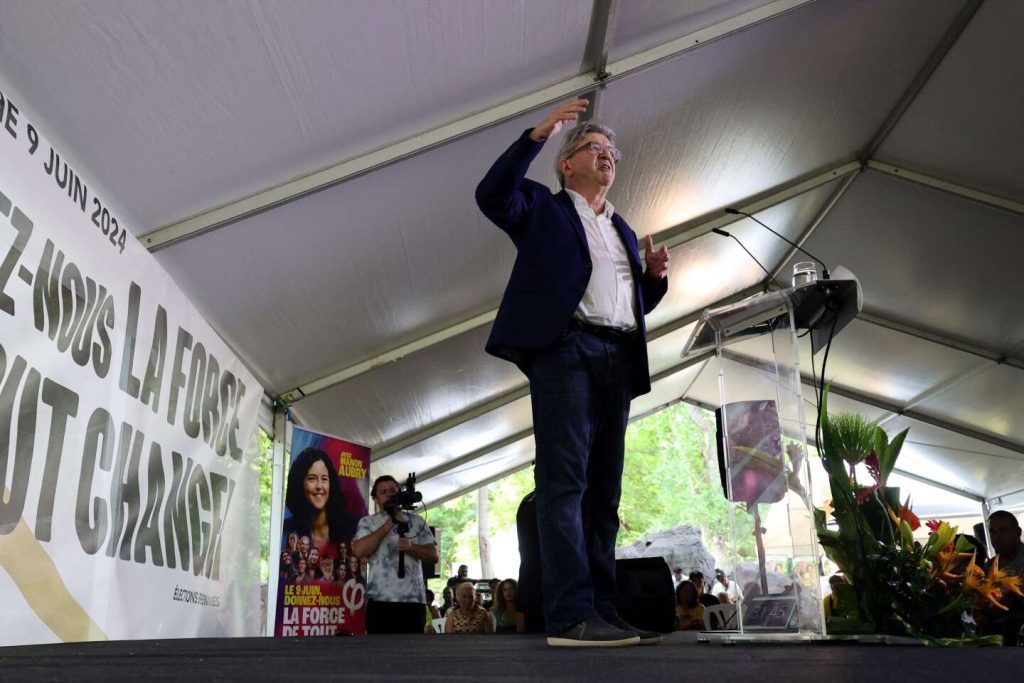The founder of La France Insoumise, Jean-Luc Mélenchon, held a meeting in Saint-Gilles-les Bains (La Réunion) on April 6, 2024. The upcoming European election is paradoxical – while it may not interest most French citizens, it does attract a highly politically conscious electorate, mainly composed of euro-enthusiastic professionals living in metropolitan areas. The results of this election do not necessarily predict future election outcomes, but all political parties understand that they will be subject to interpretation, with an eye towards the 2027 presidential election.
On the left, parties are sharpening their tools, hoping to reshape the political landscape after the failure of the Nouvelle Union populaire écologique et sociale (Nupes). Will they be able to agree on a single candidate for 2027, along with a common program and center of gravity? Three years away from the presidential election, many are looking to the European election as an opportunity to challenge Jean-Luc Mélenchon’s claimed hegemony, as they believe he may not be capable of leading the left to power. These ambitions pose a concrete threat, prompting the former socialist senator to fortify his defenses.
Despite his denial, the 72-year-old triple presidential candidate has not ruled out a fourth run, though many remain unconvinced, especially those who have known him for a long time. He claims he wants to be replaced, but also includes himself in the “hypotheses” for 2027. His first step towards this goal is to avoid a humiliating defeat for the La France insoumise (LFI) list in the European election. He has thrown himself into the battle, placing himself in the last spot on the list – a non-eligible but symbolic position – and treating this election as the “first round of the presidential election.”
This high level of involvement is a double-edged sword for the former socialist senator, as a poor result could be laid at his feet or used against him by his critics. Drawing on his political experience, Mélenchon has already begun to lay the groundwork for explaining a potential loss, attributing it to the lack of a united list among his former Nupes partners, who chose to compete separately in the European elections. Looking ahead, Mélenchon is already working to quell any potential attempts to overthrow him by listing potential successors such as Mathilde Panot, Manuel Bompard, and François Ruffin on equal footing.
As the European election approaches, the battle for interpretation of the results will begin, with an eye towards the implications for the 2027 presidential election. The left is striving to redefine itself and forge a common path forward, amid concerns about Mélenchon’s ability to lead and the need for a united front. For Mélenchon, the stakes are high as he seeks to avoid a damaging blow to his political reputation and pave the way for his potential candidacy in multiple presidential elections. It remains to be seen how the political landscape will evolve in the coming years leading up to 2027.


